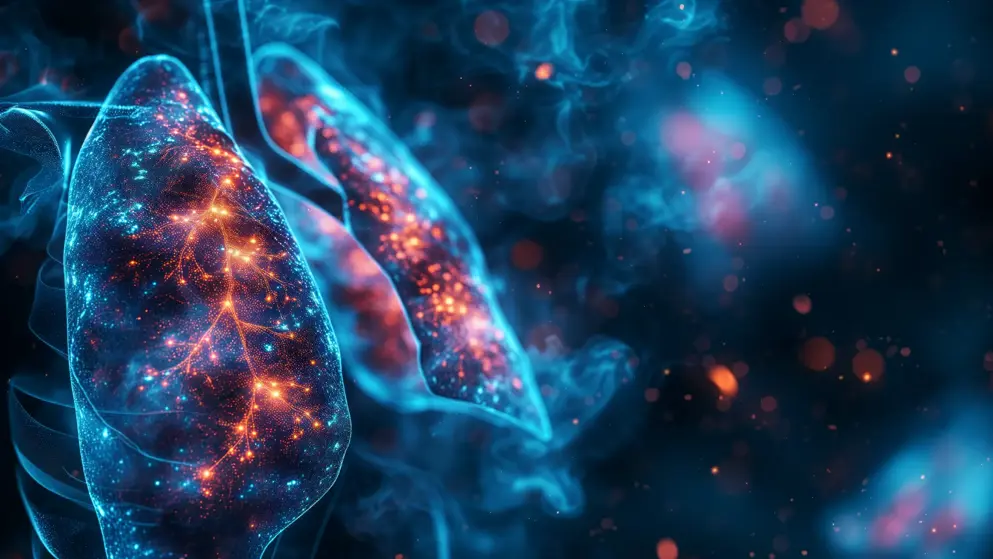
Lung cancer
Lung cancer is the leading cause of cancer-related death worldwide, accounting for 1.8 million deaths annually. It encompasses two main types:
- Non–small-cell lung cancer (NSCLC): The most common form, typically slower-growing and often treated with surgery, radiation, and chemotherapy depending on stage
- Small-cell lung cancer (SCLC): A more aggressive subtype, strongly linked to smoking, and usually managed with chemotherapy and radiotherapy. Surgery is rarely used
What are the main histological subtypes of NSCLC?
NSCLC includes three primary histological subtypes: adenocarcinoma, squamous cell carcinoma, and large-cell carcinoma. Adenocarcinoma is the most common subtype among individuals who have never smoked.
What are the key risk factors associated with SCLC?
Smoking is the primary risk factor for SCLC, with 95% of patients having a history of tobacco use. Although smoking cessation reduces risk, incidence remains elevated for >30 years after quitting. Encouragingly, reduced smoking rates have led to a decline in SCLC cases, from 6.6 to 4.7 per 100,000 individuals over the past decade.
How is lung cancer typically diagnosed and staged?
Lung cancer is typically diagnosed through chest imaging, such as X-ray or computed tomography (CT), which often reveals a central, bronchial, or hilar mass with bulky adenopathy. Confirmation is achieved via biopsy. Staging follows the TNM system, assessing tumor size, lymph node involvement, and distant metastasis.
What are the current approaches to screening for lung cancer?
Low-dose CT (LDCT) is the recommended screening method for high-risk individuals. Updated guidelines now include adults aged 50–80 years with a 20-pack-year smoking history, including those who quit within the past 15 years. These changes aim to improve early detection and reach underserved populations.
Developed by EPG Health for Medthority, independently of any sponsor.
Can telemedicine palliate patients with NSCLC?
Presented by Dr Joseph Greer (Massachusetts General Hospital Cancer Center, USA) at ASCO 2024, read outcome data from the REACH PC trial for comparing the effectiveness of early palliative care delivered through video with in-person care for patients with advanced NSCLC
Osimertinib for EGFR-mutated NSCLC – LAURA trial
Presented by Dr Suresh S Ramalingam (Winship Cancer Institute of Emory University, USA) at ASCO 2024, read LAURA outcome data for osimertinib for managing unresectable stage 3 EGFR-mutated NSCLC without progression.
ASCO 2024 A high-level overview
From ASCO 2024, read Dr Ben Gallarda’s overview of ASCO’s commitment to palliative care, artificial intelligence, and coordination with organizations.
How can poor-quality clinical trials impact clinical decision-making?
Explore why a cautious approach is warranted when interpreting trial results.
of interest
are looking at
saved
next event





